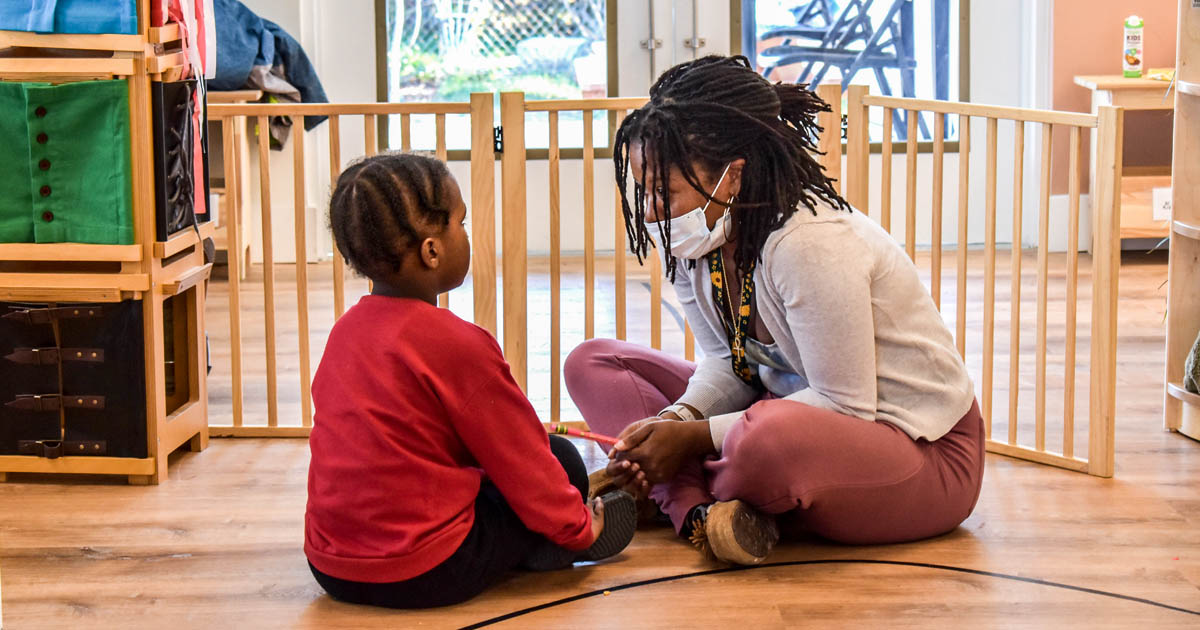
Mar 28, 2023 1:00:00 PM
In a quiet neighborhood on the eastern edge of Washington, D.C., a bright yellow house holds a new community charter school.
While the two-story residence has been converted into a Montessori school, a hominess persists in the wrap-around porch, entryway mudroom, and large windows. The classroom’s open floor plan features wooden furniture and woven mats. Houseplants liven the room in every corner.
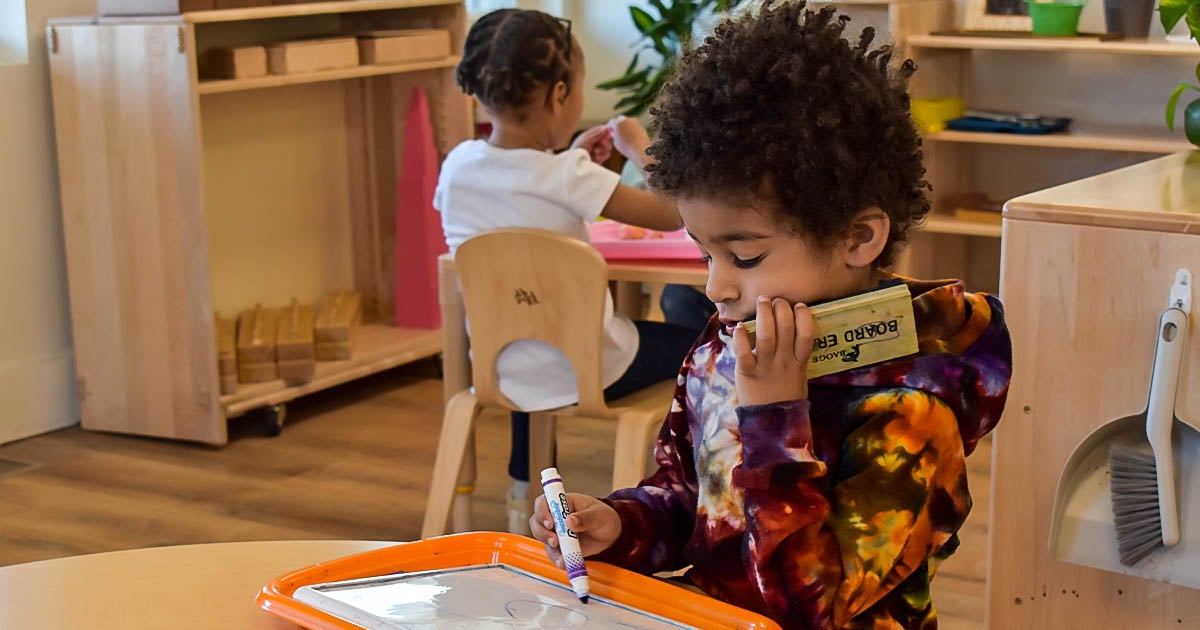
The Riverseed School is the first location of DC Wildflower Public Charter School, which offers community-minded Montessori learning. Its classrooms are intentionally small and dedicated to inclusivity.
“A big goal is creating a learning space where children are able to be who they are, where they’re able to learn about their friends and family and our community in a really safe space,” founding teacher leader Zani Dalili said.
Riverseed opened in August 2022, with 16 students ages three to five. The school was designed by Dalili and fellow founding teacher leader Ebony Marshman, who have worked together in education for seven years.
“The whole mission of DC Wildflower PCS is that teachers can open up their school sites autonomously, so being able to run schools the way we believe they should be run,” Marshman said. “Which is pretty revolutionary when you think about it, trusting teachers to do the work that we do.”
Riverseed’s version of Montessori education empowers students to be active participants in their own learning. Dalili and Marshman foster children’s independence and growth using a ‘freedom-within-limits’ approach. This allows the young learners to direct their own day within the core classroom rules.
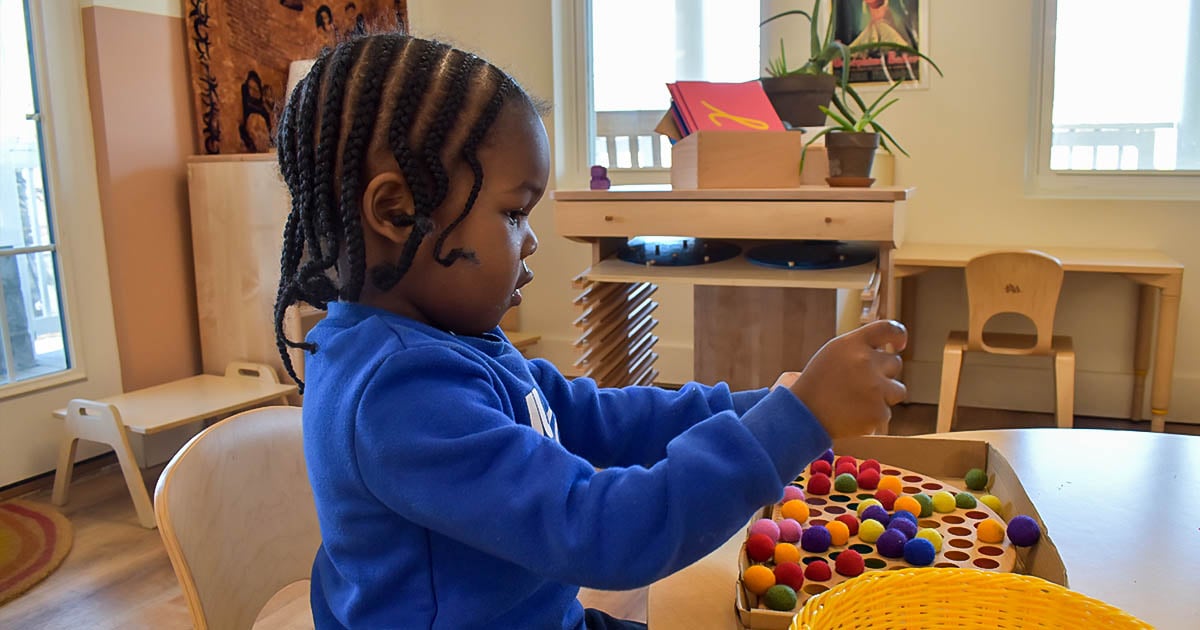
Riverseed also focuses on connecting students to nature. If they choose, children can bring their studies to the school’s outdoor workspace. In the future students will enjoy more trees, a vegetable garden and a herb garden.
“Children have a stronger connection to the outdoors when they’re actually able to be in it,” Dalili said.
DC Wildflower PCS Executive Director Rachel Kimboko said what makes Riverseed special is the amount of intention and thought put into the location, classroom design, relationships with families, and services available to students with special needs.
This intentionality extends to the diversity of DC Wildflower’s campuses. Kimboko said the city has one of the longest histories of public Montessori programs, but many of them have a majority-white population.
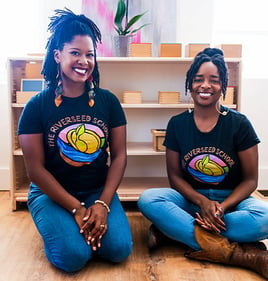
“At the baseline, all of us really want to focus on Black and Brown families,” Kimboko said. “Even less directly than that: getting Montessori awareness and accessibility to folks who haven’t traditionally taken it up.”
The charter is targeting Washington’s Wards 4, 5, 7 and 8. These areas have a majority of residents of color and include some of the poorest parts of the city, according to Census Reporter. Riverseed is located in Ward 7.
“[We’re] mostly looking at neighborhoods which haven’t had Montessori in them,” Kimboko said.
DC Wildflower is chartered for up to six schools and 225 students. It is connected to the Wildflower Foundation, a nonprofit that provides resources for the development of Montessori schools across the country.
Two additional DC Wildflower schools are working toward a 2024 or 2025 opening date, potentially in Wards 5 and 8. Like Riverseed now, these will also be pre-K and kindergarten classrooms. Kimboko said one prospective set of teacher leaders are particularly interested in food and its sustainability.
“Each of our locations will have their own personality,” Kimboko said.
Next year, Riverseed will grow from 16 to 24 students, taking in new pre-kindergarteners and kindergarteners. It already has 75 student applications, two-thirds more than last year, Kimboko said.
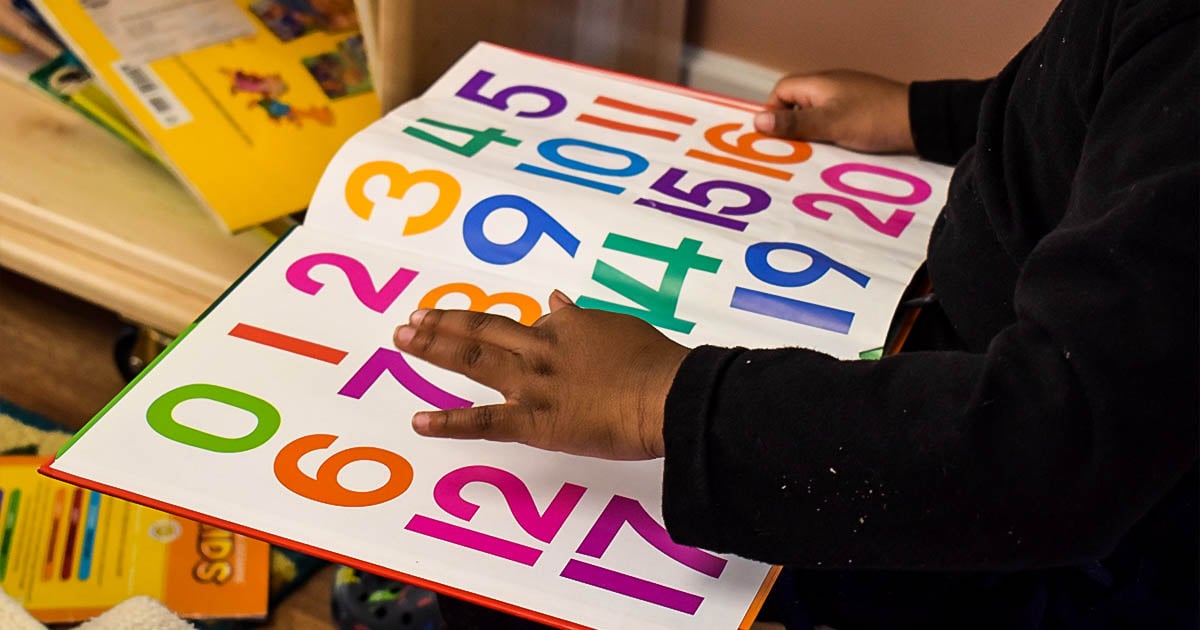
While the school currently has only pre-K students, it plans to eventually extend through fifth grade. In 2025, Dalili will start her own classroom on the second floor for elementary students.
“I love the fact that we’re so small and our growth is really small,” Dalili said.
“I feel more confident in being able to have it grow in a way that I think is actually going to be supportive of the children and us as educators.”
Children at the elementary level will be able to plan small group field trips, Dalili said. Not every student will be required to go, letting the kids choose which interests and subjects to engage in.
“That opportunity to go out into the community really builds up the intellectual energy in the classroom,” Dalili said.
Editor’s note: Check out more of our coverage to learn why Montessori could be a better way to teach low-income children and how it can move us past the false debate about work and play in elementary school. For more about Montessori in public schools, visit The National Center for Montessori in the Public Sector. To learn more about teacher training opportunities, like the Montessori Residency of Chicago, visit Teach Montessori.
Photo of founding teachers Zani Dalili and Ebony Marshman courtesy D.C. Wildflower. All other photos by Ileana Garmand
Ileana Garnand is a multimedia journalist originally from Dallas, Texas. They are pursuing a graduate degree in investigative journalism at American University and serve as a fellow at the Center for Public Integrity.
Few issues in education spark more tension and debate than standardized testing. Are they a tool for equity or a burden on students? A necessary check on school systems or a flawed measure of...
Charter schools are public schools with a purpose. Operating independently from traditional school districts, they're tuition-free, open to all students, and publicly funded—but with more flexibility...
Despite the benefits of a diverse teaching force, prospective teachers of color fall out of our leaky preparation pipeline at every stage: preparation, hiring, induction, and retention. Here’s what...
Ed Post is the flagship website platform of brightbeam, a 501(c3) network of education activists and influencers demanding a better education and a brighter future for every child.
© 2020-2025 brightbeam. All rights reserved.
Leave a Comment